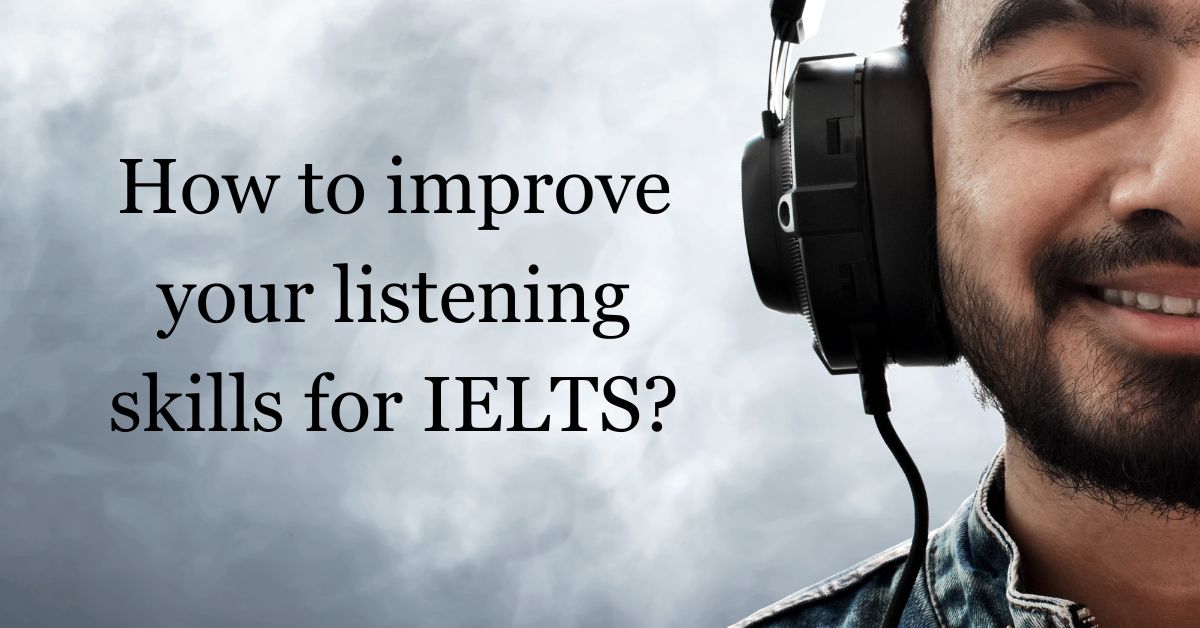Introduction
Listening is an important part of the IELTS
test, and part of your score is based on how well you can understand what you
hear. Listening skills can be improved with practice, so if you want to do
better when taking the IELTS exam, listen more carefully every day. Here are
some strategies for improving your listening skills:
What is the
IELTS Listening Test?
The IELTS Listening Test is a 45-minute test,
split into four sections. Each section will give you different types of
listening tasks to complete and is scored on a scale from 1-9. You will be
awarded 0-4 marks for each part of the test, depending on how well you answer
each question.
Why is it
important to improve your listening skills for the IELTS?
Yes, it is
important to. So, you must focus on listening skills.
The listening section of the IELTS exam is one
of four skills that you need to be tested on. It's also a skill that many
students often overlook when preparing for this particular test, but it can be
improved with practice and some extra focus.
The
following strategies can help you prepare for the IELTS listening test
You have to follow these top strategies to
improve your listening skills, you need to be able to listen actively as well
as read at the same time. You should try this out before starting your practice
tests so that you're familiar with it by the time of your test date. If you planning
for IELTS exam preparation follow these strategies.
Strategy 1:
Get used to listening actively and reading at the same time.
- Listen to the recording and read the
transcript at the same time.
- Read the transcript as you listen.
- Read the transcript after listening to it
once, and then listen again (you can also do this more than one time).
- Read the transcript before you listen, so
that when you hear something in real life it will trigger some words from
your mind which help understand better what was said by someone else's
voice on tape or CD player etc.
Strategy 2:
Focus on formulating a question before you listen to the whole recording.
To listen effectively, you need to formulate a
question before listening to the whole recording.
This is because it's difficult for our brains
to process information that comes at us from all directions at once. If we know
what we're looking for and have an idea of how it might sound, then it becomes
much easier for us to pick out important details from what people are saying
and interpret them correctly.
(Read More: 7 Effective IELTS Reading Tips To Increase Your Score)
Strategy 3:
Listen more than once.
While you can listen to a recording only once
and pass the test, it's better to listen more than once in order to fully
understand what is being said. This strategy requires you to:
- Listen again and again until you've
memorized all of the information in the recording.
- Listen from different sources (e.g.,
YouTube videos or other websites).
- Listen from a different perspective
(e.g., as if you were talking with someone).
Strategy 4:
Be aware of that what you know about the topic and what you don't know.
A fourth strategy is to be aware of what you
know about the topic and what you don't know. This will help you decide which
parts of the recording need careful listening and which can be skimmed over or
ignored entirely. You can use this information to focus on areas where there
are gaps in your knowledge, so that when it comes time for answering questions
on those parts, they will be easier for you because they're familiar territory
(or at least not completely unfamiliar).
(Read More:
How to Plan for A Stress-Free IELTS Preparation)
Strategy 5:
Make use of the visual material if it's available in the exam room.
If there is visual material available in the
exam room, take advantage of it. The visual material can help you to understand
the topic better and also understand the speaker's tone of voice and body
language.
Strategy 6:
Choose an approach that suits you best.
Finding a strategy that works for you is
important.
There are many different approaches to
listening, and it's up to you to pick the one that suits your needs best. Some
people prefer active listening skills, while others may find passive listening
more effective. There are advantages and disadvantages of each method, but at
the end of the day, it all comes down to what works best for YOU!
Conclusion
IELTS is a very important test for anyone who
wants to study in an English-speaking country. The IELTS exam
is the first step towards overseas education. If you want to improve your listening skills for the IELTS test, then
this article will help you. In it, we will discuss how to improve your
listening skills and what things can affect them negatively or positively.

Comments
Post a Comment